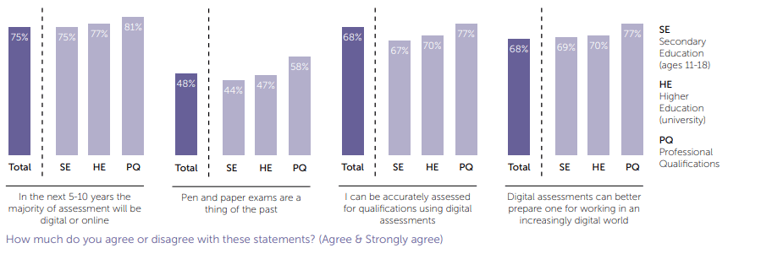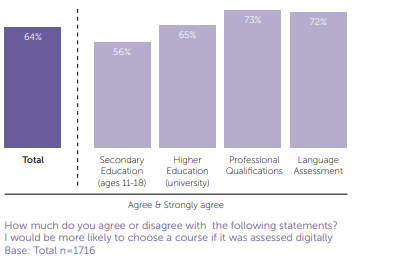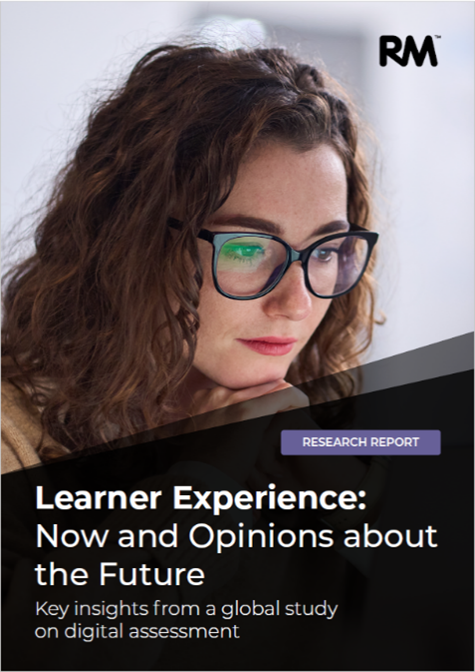Author:
Lisa Holloway
Key insights from a global study on digital assessment
In Q2 2024, RM commissioned independent global research exploring accreditors’, markers’ and learners’ current experiences and their perceptions of the future of digital assessment. The research targeted learners in the UK, Australia, New Zealand, US, Canada and Singapore.
Responses were obtained from over 2,400 learners in May 2024. Trends and insights are uncovered in research report: Learner Experience: Now and Opinions about the Future, the first in a series, focusing on learner experience and the opinions of learners for the future of assessment.
This research covers several areas relating to digital assessment in both the professional and general qualifications arenas.
The learner experience is the most important consideration for educational institutions, exam awarding bodies and governments worldwide.
These research findings will help them better align their qualifications to meet the needs of their learners.
Key findings preview
- Learners prefer flexible digital assessment over pen and paper.

There is a clear overall preference for digital exams among learners.
59% of learners prefer digital assessment compared to just 22% for pen & paper, almost 3:1. Learners in the US have the strongest preference for digital exams.
- Learners taking professional qualifications are more positive about digital assessment.

Perception of accuracy is marginally higher for digital (68%) compared to pen and paper assessment (65%). The difference was more marked among learners who have had a previous positive experience with digital assessment. There, 72% agree for pen and paper and 79% agree for digital.
- Digital assessment is more attractive to learners than traditional assessments and can influence the subject/school they choose.

64% of learners from a total of 1,716 said they would be more likely to choose a course if it was assessed digitally. 73% of learners taking professional qualifications agreed.
- The majority of learners have some experience with digital assessments.

Based on the fact that 71% of the learners responding to our questions have experienced a form of digital assessment, this made the insights especially valuable, as they were able to provide first-hand feedback.
There is a high number (67%) of secondary education learners who have enough experience of digital assessments to be able to say they feel they can be accurately assessed for qualifications using digital assessments, but this reflects the online assessments that were brought in as a response to the COVID-19 pandemic.
For further insights around current learner experience and how they view the future of assessment that will meet their needs, including:
- What proportion of learners’ work or study is currently digital?
- How can assessments create a more level playing field?
- How will Artificial Intelligence (AI) be used in education or work settings in the next few years?
- How long should learners have access to digital assessment platforms prior to taking exams digitally in school or for professional qualifications?
- What are the best approaches to different subjects and authentic testing?
Request the other research reports in the series
To request forthcoming titles in the series of research reports exploring accreditors’, markers’ and learners’ current experiences and their perceptions of the future of digital assessment, email: assessment@rm.com

